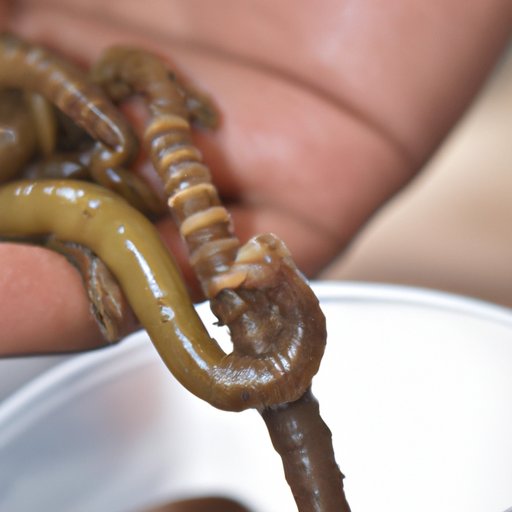
Can You Get Worms from Your Dog?
As a dog owner, you want the best for your furry friend. This means keeping them healthy and free from any illnesses or infections. One such concern that can arise is the possibility of contracting worms from your dog. In this article, we will explore this topic in depth, separating fact from fiction, and providing you with the information you need to protect yourself and your pet.
The Truth About Worms: Separating Fact from Fiction
Myths and misconceptions about worms are prevalent and can be misleading. One common misconception is that dogs get worms only if they are not clean or well-cared for. However, this is not true. Worms can infect even the most well-groomed dogs. Understanding the truth about different types of worms and how they affect dogs and humans is essential for proper prevention and treatment.
There are several different types of worms that can infect dogs, including tapeworms, roundworms, hookworms, whipworms, and heartworms. These worms can cause various symptoms in dogs, including vomiting, diarrhea, weight loss, and anemia.
People can also contract these worms from infected dogs, but the specific type of worm that can transmit to a human depends on the worm species and the parasite’s life cycle. For example, humans can acquire tapeworms by consuming undercooked meat containing the larvae.
Are You at Risk for Contracting Worms from Your Furry Companion?
Several factors increase the risk of transmitting worms from dogs to humans. Children, pregnant women, elderly individuals and individuals with weakened immune systems are particularly susceptible to worm infestations. Symptoms of worm infections in humans and dogs can vary widely and may not be present in some cases.
In humans, symptoms may include abdominal discomfort, diarrhea, weakness, fatigue, and weight loss, among others. In dogs, symptoms can include poor coat quality, lethargy, weight loss, and vomiting or diarrhea. Early detection and treatment of worm infections are crucial in both humans and dogs for better health outcomes.
Worms and Dogs: How to Protect Yourself and Your Pet
There are several ways to protect yourself and your dog from contracting worms. Prevention is key to avoid infestations, and implementing preventative measures will also reduce the risk of reinfestation.
Preventative methods for dogs include administering monthly heartworm, flea and tick medication, regular check-ups with your veterinarian, and proper disposal of your dog’s feces. For humans, maintaining good hygiene habits, such as frequent hand washing, avoiding contact with dog feces, and not allowing dogs to lick your face can help reduce the risk of transmission.
Additionally, adopting healthy habits when cleaning up after your dog can help prevent infection and reinfection. Use gloves, proper disposal methods, and maintain cleanliness in areas where your dog frequently spends time.
The Top 5 Worms You Can Catch from Your Dog
While there are various types of worms that dogs and humans can contract, some are more common than others. The top five types of worms that can infect humans are:
- Roundworms
- Hookworms
- Tapeworms
- Whipworms
- Heartworms
Each worm infection produces specific symptoms and treatments. For example, tapeworms can be treated with appropriate medication. Heartworms, on the other hand, require more aggressive treatment and may require hospitalization.
To prevent contracting these worms, avoiding contaminated water and soil, practicing hygienic habits, and properly disposing of your pet’s feces are essential.
Understanding Parasitic Infections and How to Prevent Them in Dogs
Parasite infections are common in dogs and can cause various health issues. Some common parasitic infections include fleas, ticks, and mange. Regular veterinarian check-ups and administering preventative medication can reduce the risk of infection and reinfestation.
You can reduce the risk of flea and tick infestations by vacuuming and regularly cleaning your home and yard, checking your pet regularly for fleas and ticks, and using flea and tick prevention products. Additionally, bathing your dog and maintaining their coat with regular grooming will help reduce the risk of mange and other skin infections.
Conclusion
The possibility of contracting worms from your dog can be a concerning topic for dog owners. However, by understanding the facts about different types of worms, their symptoms, and treatments, you can better protect yourself and your dog from infestations.
Implementing preventative measures such as regular veterinary check-ups, administering preventative medication, and maintaining good hygiene habits will help reduce the risk of infection and reinfestation. If you suspect that you or your dog has a worm infection, seek medical assistance promptly to ensure prompt treatment and lower the risk of further health complications.




